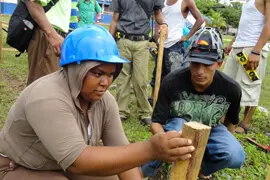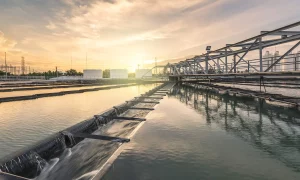Gender Practice in Water Governance Programmes – From Design to Results
Women’s important role in water management, both in the household and in small-scale farming is widely recognized, yet effective implementation of methods and strategies to overcome gender-based barriers to women’s equal participation in water and sanitation projects remain elusive.
This report looks at the gender strategies, results and reporting of the eleven water and sanitation governance programmes. Through extensive reviews of project documentation, personal communication and interviews with programme staff this report provides insights on gender mainstreaming in programming with the aim of helping future water and sanitation projects to achieve more sustainable results and greater effects on gender equality.
Lesson learned
- In contrast to what might be expected, the report found that ambitious gender mainstreaming in the programme design had a very tenuous link to any greater focus on gender in the programme implementation or results reporting. Rather, what came out as the most important factors for successful implementation on gender-based inequalities was the commitment by programme leadership and to bring gender expertise on board, for example via strategic alliances with women’s organisations.
- The programmes that were the most effective in reducing gender inequalities in their areas of intervention focused on the (collective) organization and strengthening of women and women’s organizations and on challenging the attitudes on gender equality of men and boys. To combine the gender and intercultural perspectives also came out as important as most programmes in this review operated in areas with a high level of indigenous peoples.
Summary
Due to the heavy focus on engineering in most water and sanitation sector interventions, the integration of social concerns is challenging. It is not uncommon for gender issues to be seen as irrelevant or marginal. Even for projects that are ostensibly committed to gender mainstreaming, the lack of high-level support and resource allocation, compounded by the lack of experience and accountability mechanisms, make it difficult to turn gender-related knowledge into practice.
The report finds that to achieve important advances in gender equality within the governance of water and sanitation, organisations and agencies need to review not only their own structures and practices, but also to develop a better understanding of the underlying power dynamics and structural barriers that reinforce gender inequalities. This would imply strategies with greater focus on women’s solidarity and collective action, and the inclusion of men and boys in the work towards changing values, attitudes and gender relations. Whereas a thorough gender analysis and mainstreaming of gender issues into programme design is a good starting point, to ensure a committed leadership and the involvement of gender expertise is essential to institute substantive gender-related focus and activities into the programme.




